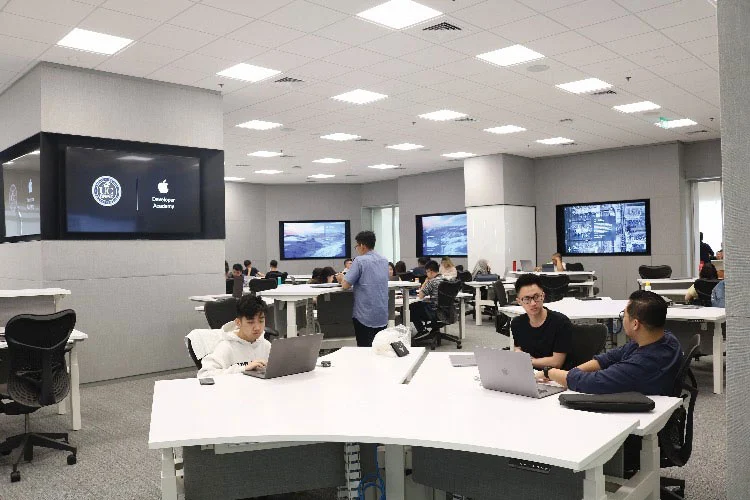At the Apple Developer Academy’s recent exhibition in Jakarta, three innovative health applications stood out for their potential to make a significant impact in Indonesia’s healthcare sector. These apps—Polaread, Apical, and Chamelure—are all developed by young, talented students and address critical health challenges faced by Indonesians.
Polaread stands out as a transformative solution for those with dyslexia. Traditionally, dyslexic individuals often face difficulties in reading, especially when it comes to maintaining focus. Polaread uses color-coding to enhance focus and track reading progress. As explained by Mochammad Latifulfikri, the app's design lead, this automatic coloring process that once took hours now only requires two seconds.
The app allows users to customize the color schemes for different levels of text, making reading easier and more efficient. Polaread also caters to individuals with ADHD and others struggling to maintain concentration while reading. Currently available on the macOS App Store, the app plans to remain free, though premium features, such as bookmarks and notes, will be added in the future.
Next, Apical is making waves by addressing a significant health issue in Indonesia: HIV. Indonesia faces one of the highest HIV rates in ASEAN, with over 540,000 cases detected in 2023 alone. Despite the availability of ARV (anti-retroviral) medication, only about 36% of patients adhere to their treatment plans.
Hario Aji Daniswara, the UI/UX designer for Apical, explains that many HIV patients face stigma, lack of understanding, and difficulty accepting their diagnosis, which hinders their treatment. Apical aims to improve medication adherence by offering features such as medication reminders, viral load tracking, and access to a supportive community. The app is designed to help patients stay consistent with their ARV regimen, supporting Indonesia’s goal of reducing the HIV burden.
Lastly, Chamelure is an innovative app targeting children with amblyopia, commonly known as lazy eye. This condition affects over 8.2 million children in Indonesia and can lead to long-term visual and social development issues if left untreated. Chamelure offers a fun, game-based approach to therapy, using anaglyph glasses that help children train both eyes to work together.
The app’s interactive games encourage children to engage in therapy while enjoying the process. According to Quinela Wensky, Chamelure’s Product Designer, the goal is to improve depth perception and visual coordination. Clinical trials are planned for 2025, with the aim of proving the app’s effectiveness in treating lazy eye.
Each of these apps reflects the innovative spirit of the Apple Developer Academy. Students combine technical skills with real-world health needs. Their solutions hold the promise of improving healthcare access and outcomes for many Indonesians, from those living with dyslexia to HIV patients and children with visual impairments.
LIPUTAN6
Read More






 Thursday, 08-01-26
Thursday, 08-01-26







